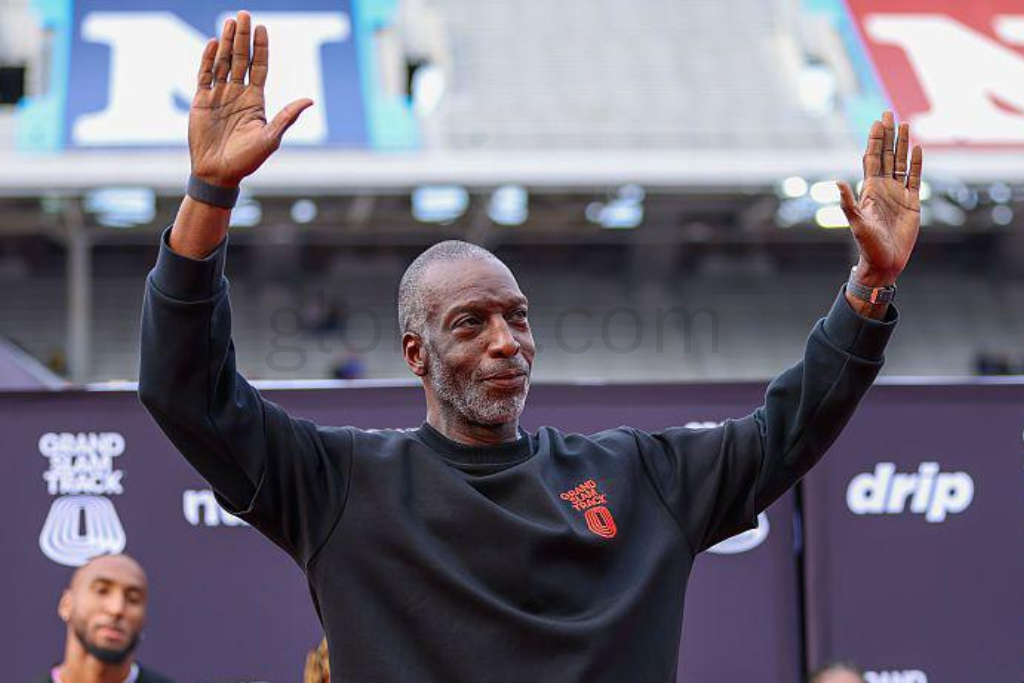Los Angeles Grand Slam Track Event: Behind the Shocking Cancellation
The Los Angeles Grand Slam track event cancellation shocked the global sporting community. The decision to cancel this monumental event just weeks before kickoff has left fans, athletes, and organizers stunned. But what really led to such a drastic move?
Insiders report that a combination of unresolved financial conflicts, last-minute sponsor withdrawals, and unanticipated city permit delays converged to derail what was billed as the most anticipated track event of the year. Sources close to the organizing committee revealed that attempts to salvage the event went on late into the night over a series of emergency meetings. Still, logistical constraints proved insurmountable.
The cancellation marks a major setback for Los Angeles, which has been working diligently to rebrand itself as the new global hub for athletics ahead of the 2028 Olympic Games. As one anonymous official stated, “This is not just a cancelled event. This is a blow to LA’s reputation as a host city.”
In addition to the logistical failures, the ongoing labor disputes between city staff and event contractors played a key role. There were also significant concerns over athlete safety due to the incomplete resurfacing of the track, which was supposed to be ready by early June but remained half-finished by the time of cancellation.
One event sponsor, under the condition of anonymity, said:
“We pulled out because we didn’t want to be associated with organizational chaos. It’s heartbreaking, but sometimes you must choose reputational safety over risk.”
The event’s official statement read:
“It is with immense regret that we announce the cancellation of the 2025 Los Angeles Grand Slam Track Meet due to unforeseen logistical and contractual issues beyond our control.”
The domino effect of this announcement has been swift. Other upcoming athletic events in California are now under review, and major sponsors are reevaluating future commitments.
The cancellation raises important questions: Are mega-sporting events becoming too complex to manage at a city level? Should athletic federations move toward more centralized event oversight? As the dust settles, the athletics world must grapple with the fallout from this shocking development.

How the Los Angeles Grand Slam Cancellation Affects Olympic Preparation
The Los Angeles Grand Slam track event cancellation is more than a scheduling inconvenience—it’s a significant psychological and logistical blow to athletes in the final phases of Olympic preparation.
For sprinters, hurdlers, and long-distance runners alike, the LA Grand Slam was a critical checkpoint. It was a chance to hit qualifying standards, gauge international competition, and earn sponsorship incentives. Now, with the event off the calendar, many athletes find themselves scrambling to find alternative competitions in an already packed season.
Track and field athlete and Tokyo 2020 silver medalist Molly Carson didn’t mince words:
“This event was my final tune-up before Paris. Now I have to pivot and travel across the globe last-minute. The stress isn’t just physical—it’s emotional.”
This sudden disruption could skew training peaks. Elite runners often tailor their entire year around two to three performance peaks. The LA meet was intended to be one of those. Now that anchor is gone, coaches must rapidly re-strategize while managing injury risks.
Sports psychologist Dr. Laney Kim weighed in:
“Events like these help athletes mentally anchor themselves. A sudden cancellation can heighten performance anxiety and disrupt rhythm, especially for younger or recovering athletes.”
Several para-athletes, particularly from developing countries, are hardest hit. Many had secured partial funding only for the LA event, and now lack the resources to participate in replacements being organized in Europe or Asia.
The cancellation also affects athlete branding. For many rising stars, the event was a golden opportunity to showcase themselves on a U.S. broadcast platform. Without it, they may remain unknown outside their home countries, costing them valuable endorsements.
From relay teams forced to rearrange baton practices to high jumpers missing critical warm-up meets, the loss of the LA Grand Slam creates ripple effects that could extend all the way to the Olympic medal podiums. The need for a coordinated global contingency plan for elite-level track events has never been clearer.
Economic Impact of Los Angeles Grand Slam Track Event Cancellation on Local Businesses
The Los Angeles Grand Slam track event cancellation has not only disrupted athletes and fans—it has triggered a significant economic setback for the city’s hospitality and tourism sectors.
The LA Sports & Tourism Board projected over $80 million in direct revenue from the Grand Slam event. With the cancellation, hotels have reported an estimated 45% drop in summer bookings for the event week. Vendors who had signed contracts for pop-up shops, food stalls, and transport services are now filing insurance claims and demanding damages.
Maria Gonzalez, owner of a local catering service that was supposed to serve VIP suites, shared:
“We ordered inventory weeks ago. Now, we’re sitting on thousands of dollars worth of perishable goods, and there’s no compensation plan in sight.”
The Los Angeles Chamber of Commerce has called for an urgent review of the city’s event planning infrastructure. “This isn’t just a sports event cancellation—it’s a lost economic opportunity for small businesses,” said President Terrence Vaughn.
The hospitality industry wasn’t the only one impacted. Public transport agencies had diverted services and pre-ordered overtime schedules. Media outlets who had paid for coverage rights are scrambling for refunds. International fans, particularly from Europe and Africa, are demanding ticket reimbursements and travel compensation.
Economist Dr. Janice Bell analyzed the broader picture:
“Sporting events like the Grand Slam are economic engines. A cancellation of this magnitude creates a multi-sectoral shock. You’re looking at a local GDP contraction for the quarter.”
Several sponsors have hinted at seeking legal redress, citing contractual breach. Event merchandise suppliers are stuck with unsold inventory branded for an event that never happened.
While large-scale sporting events promise visibility and economic dividends, LA’s experience reveals the fragility of that promise. The cancellation has exposed the thin margins between a successful city-hosted event and a financial catastrophe.

Global Repercussions: What the LA Cancellation Means for the Future of Track Events Worldwide
The Los Angeles Grand Slam track event cancellation has ignited a global conversation about the sustainability and governance of elite athletics events. Organizers, sponsors, and athletes worldwide are watching closely—and rethinking strategies.
World Athletics President Sebastian Coe released a statement:
“The cancellation of the Los Angeles Grand Slam is a wake-up call. We need better structural safeguards and risk management protocols for our premier events.”
Many national athletics federations are now pressing for centralized oversight and event insurance mandates. They argue that cities bidding to host must demonstrate greater logistical preparedness, stronger sponsor security, and backup planning capabilities.
The abrupt nature of LA’s cancellation has also reignited debate around decentralizing elite meets. Rather than mega-events in single cities, should the calendar pivot to regional, modular events less prone to systemic failure?
Analysts have begun calling for a “Track Nations League” model, mimicking soccer’s multi-venue format. In this model, top-tier competitions are split across different cities and aggregated for a final showdown, ensuring more flexibility.
Athletes are also uniting in advocacy. A collective led by U.S. sprinter Devon Kingsley is proposing a “Protected Meet Calendar” endorsed by World Athletics. Under the plan, key events like the Grand Slam would have fail-safe guarantees—including location backups and financial insurance.
Broadcasters, too, are feeling the sting. Major streaming platforms like Peacock and Eurosport had heavily invested in digital content rights. Their programming disruptions are likely to impact future contract negotiations.
Meanwhile, international media has scrutinized the Los Angeles city administration. From the BBC to Al Jazeera, reports are asking how a leading global city could falter on such a high-stakes occasion.
As the athletic world reassembles itself post-cancellation, the lesson is clear: no event, however prestigious, is immune from systemic vulnerability. And the global community must evolve accordingly—both in mindset and infrastructure.




